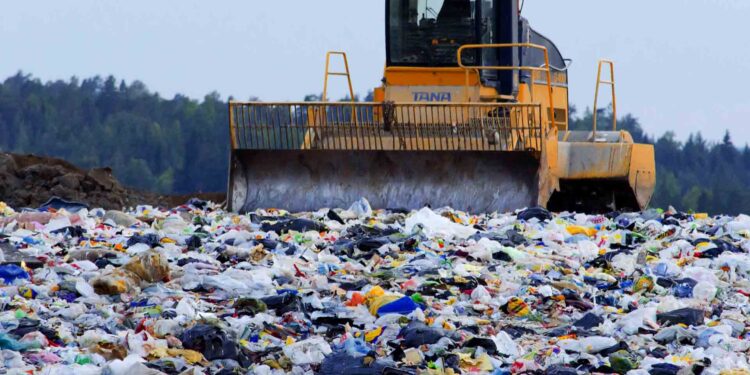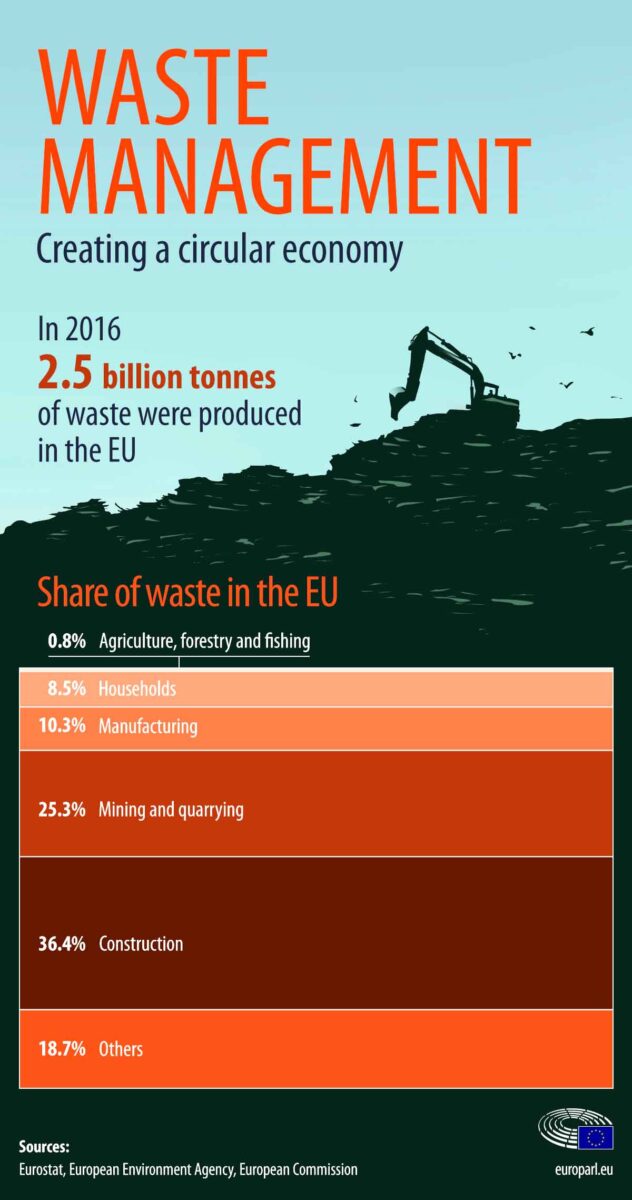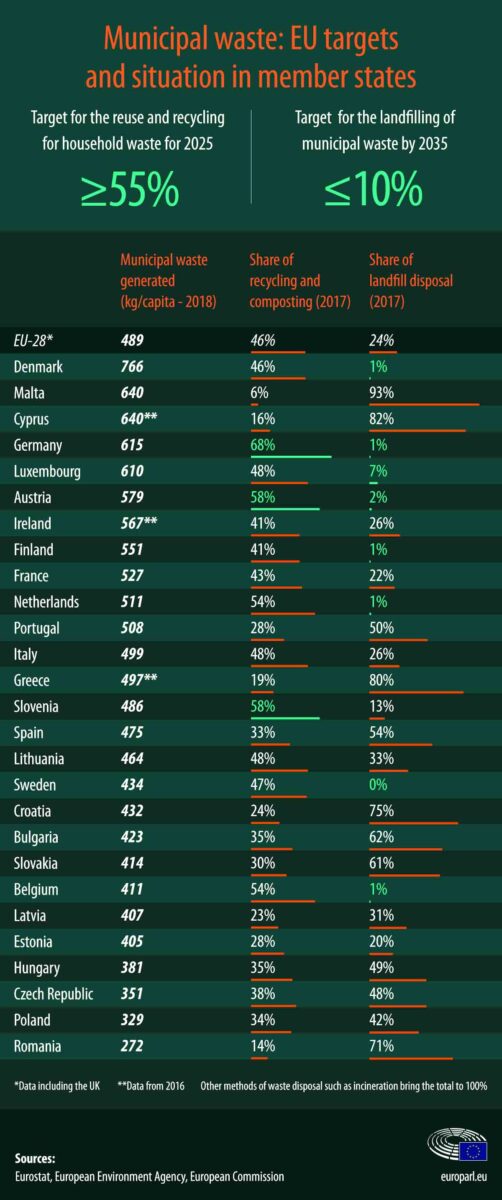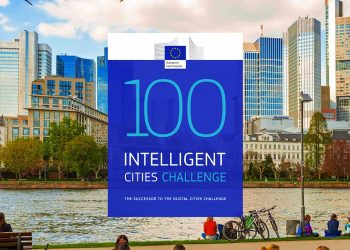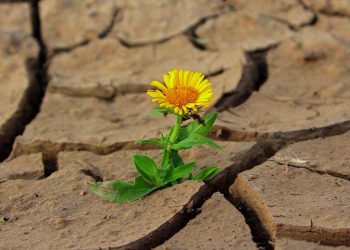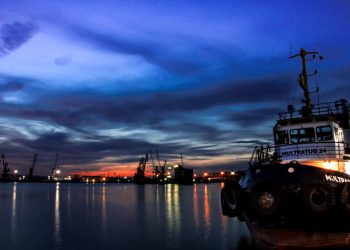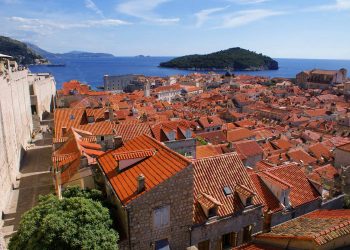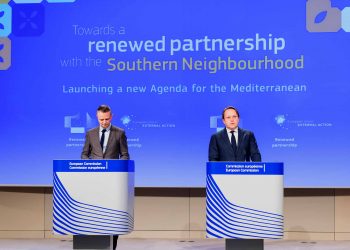Waste management planning is the cornerstone of any national, regional or municipal policy on waste management. The establishment of a plan allows taking stock of the existing situation, defining the objectives and formulating appropriate strategies. Waste management identifies the necessary implementation means.
Although municipal waste accounts for less than a tenth of the more than 2.5 billion tonnes of waste in the EU every year, it is very visible and complex in nature.
In 2018, the EU set new, ambitious targets on recycling, packaging waste and landfill. The goal of these new rules is to promote the shift towards a more sustainable model known as the circular economy. In March 2020, the European Commission unveiled an action plan for a circular economy that aims to cut waste by better managing resources. The European Parliament will vote on an own-initiative report on the action plan in early 2021.
Circular Economy targets for materials use and consumption footprint
Waste generation in Europe
From 2005 to 2018 the average amount of municipal waste as measured per capita declined in the EU. However, trends can vary by country. For example, municipal waste per capita increased in Denmark, Germany, Greece, Malta and the Czech Republic. It decreased in Bulgaria, Spain, Hungary, Romania and the Netherlands.
In absolute terms municipal waste per person was the highest in Denmark, Malta, Cyprus and Germany. It was the lowest in Hungary, the Czech Republic, Poland and Romania. Wealthier states tend to produce more waste capita. Tourism also contributed to the higher rates in Cyprus and Malta.
How the EU wants to achieve a circular economy by 2050
Waste management
In order to look after the environment, waste either needs to be avoided or treated to reduce its impact. The EU wants to promote the prevention of waste and the re-use of products as much as possible. If this is not possible it prefers recycling (including composting), or next by using waste to generate energy. The most harmful option for the environment and people’s health is simply disposing of waste, for example on landfill, although it is also one of the cheapest possibilities.
According to statistics from 2017, 46% of all municipal waste in the EU is recycled or composted. However, waste management practices vary a lot between EU countries and quite a few countries are still landfilling large amounts of municipal waste.
Country comparison — Municipal waste recycled and composted in Europe
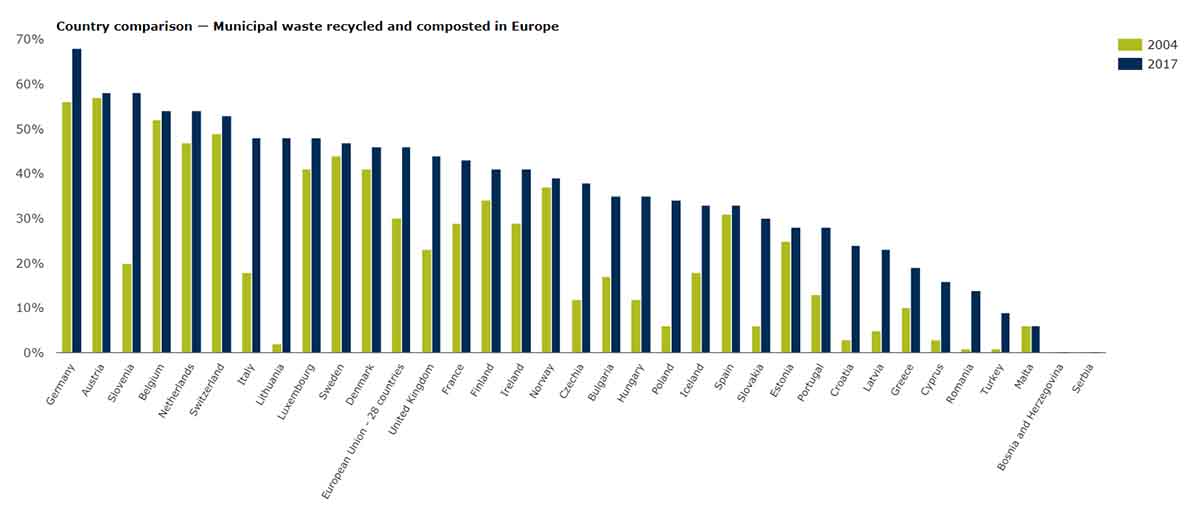
Landfilling is almost non-existent in countries such as Belgium, the Netherlands, Denmark, Sweden, Germany, Austria and Finland). Here incineration plays an important role alongside recycling. Germany and Austria are also the EU’s top recycling countries. The practice of landfilling remains popular in the eastern and southern parts of Europe. Ten countries landfill half or more of their municipal waste. In Malta, Cyprus and Greece this is more than 80%. In Croatia, Romania, Bulgaria and Slovakia it is more than 60%, while it is also half or more in Spain and Portugal.
Other countries also use incineration and send a third or less of their waste to landfill: Lithuania, Latvia, Ireland, Italy, France, Estonia, Slovenia and Luxembourg. Apart from Latvia and Estonia, these countries also recycled more than 40% of household waste.
Between 2006 and 2017, landfilling decreased substantially in Slovenia (69 percentage points), Lithuania (65 percentage points), Latvia (64 percentage points), Estonia (60 percentage points) and Finland (57 percentage points).
Waste recycling
Recycling rates of municipal waste, packaging waste and waste electrical and electronic equipment — which represent significant sources of secondary materials and critical raw materials — are increasing in Europe, indicating a move towards using waste as a resource and a more circular economy.
Recycling rates for both municipal waste and packaging waste have increased substantially. 16 percentage points between 2004 and 2017 for municipal waste. 13 percentage points between 2005 and 2016 for packaging waste. In 2017, 46 % of the municipal waste generated in the EU-28 and Iceland, Norway and Switzerland was recycled; in 2016, 67 % of packaging waste generated in the EU-28 and Iceland, Liechtenstein and Norway was recycled.
Municipal waste recycling rates differ widely between European countries. It ranges from 68 % in Germany to 0.3 % in Serbia in 2017. In 2017, three countries recycled already 55 % or more of their municipal waste. In 2017, 28 countries recycled 55 % or more of their packaging waste and 15 countries recycled 65 % or more of their packaging waste.
These improvements have been partly driven by EU targets introduced in 1994 and 2008 and later by the circular economy packages (2015).

